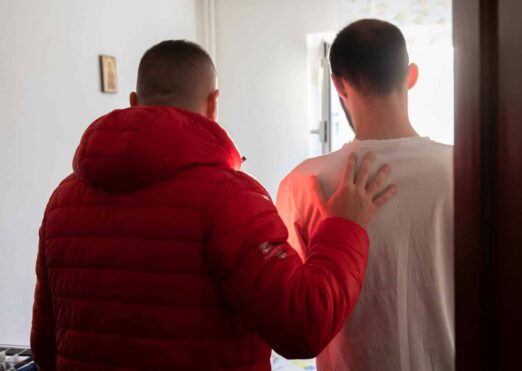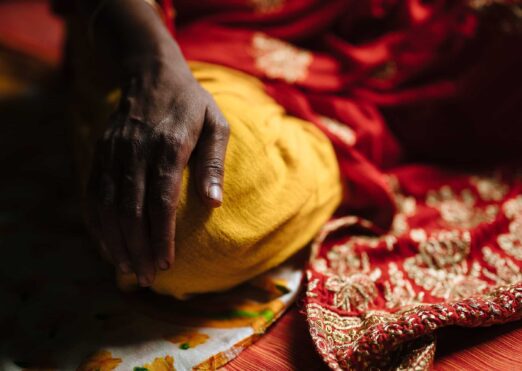Exploitation – Qatar, the 2022 FIFA World Cup and Migrant Workers’ Exploitation
November 18, 2022
Football fans and two of our International Systemic Change team, Nicole Munns and Kaavya Singh, examine the need for Qatar to honour its commitments to migrant workers as the World Cup kicks off.
For football fans, the wait is over. This weekend sees the kickoff of the world cup in Qatar. On the field there will be no doubt controversies about offside decisions, penalties and red cards. But that’s nothing compared to what has been happening out of sight.
Labour violations
Since Qatar was granted the right to host the 2022 FIFA World Cup, there have emerged widespread reports of labour rights violations against migrant workers, including the use of forced labour.
More than two million migrants work in Qatar, making up 95 per cent of the workforce in the private sector. Indeed, around 10 percent of all migrants globally are based across the six Gulf Cooperation Council (GCC) countries which includes Qatar.
The latest research of the International Labour Organisation (ILO) and Walk Free estimates that Arab states across the Persian Gulf have the highest prevalence of forced labour – 5.3 per thousand people in 2022. The majority of these workers are from Asia, with a sizeable number also coming from Africa.
Growing concerns
Across many of the sectors central to the sporting event, there have been reports of significant worker debt due to unethical recruitment practices, delayed or non-payment of wages and the withholding of end-of-service benefits and annual leave. Construction, hospitality, cleaning, private security and waste disposal are some of the sectors that record the highest incidences of abuse.
Failure to enforce labour laws and penalise such exploitative employers is a common story. While Qatar has carried out significant reforms and ratified international human rights treaties, it does not recognise the right of migrant workers to join or form a trade union. Punitive action against those who protest and systemic hurdles in attaining justice when workers’ rights are violated are also prevalent. Construction companies involved in building stadiums for the World Cup have been found to actively evade labour inspections. Workers are often left with nowhere to turn.
Safety – tens of thousands killed and injured
Analysis in 2021 found that 6,500 migrant workers from India, Pakistan, Nepal, Bangladesh and Sri Lanka had died in Qatar since it won its bid to host the event in 2010. In 2020 alone the ILO estimated that 50 foreign labourers died, more than 500 others were seriously injured and another 37,600 suffered mild to moderate injuries due to World Cup related projects. This has led to growing concerns for the safety of the workers involved in the preparations for the sporting event.
Occupational heat stress disorders linked to the region’s scorching summer also remain a major cause of concern. Although the number of workers being treated have fallen after the introduction of new restrictions in 2021, there is a need to strengthen the implementation of these measures.
Systemic problems
Qatar’s Kafala system of sponsorship based employment has long perpetuated the imbalance of power in favour of employers and increases the risk of labour abuses. Employers are the official “sponsor” (kafeel) from the moment these workers’ enter the country and continue throughout their employment.
While the Kafala system has been abolished, poor enforcement has undermined this progress. In 2018 Qatar ended the ‘exit permit’ requirement for most workers, enabling them to leave the country without their employer’s permission, however employers continue to have the legal right to cancel workers’ residence permits or file “absconding” charges against those who leave without permission. Migrant workers can consequently lose their right to stay in the country and face arrest or deportation. Passport confiscation also appears to remain widespread, particularly among the country’s domestic workers.
In addition to the reforms in their sponsorship system, Qatar had signed an agreement with ILO in 2017, on wide-ranging issues that included: access to justice, worker voice, health and safety, decent pay and ethical recruitment. Recently, the ILO reported that the number of worker complaints has more than doubled in 2022 with the launch of a new online reporting platform. While this has largely been viewed as a step in the right direction, weak implementation and enforcement of such reforms has meant that a majority of workers continue to face systemic abuse and exploitation.
The wage protection system, introduced in 2015 to allow the Government to monitor payments to employees and detect and stop wage theft, continues to fall short in ensuring access to adequate remedy. A recent increase in minimum wage also does little for low wage workers in Qatar who earn as low as £1 an hour. Significant progress to ensure these reforms are effectively enforced still needs to be made.
The need for action
Whilst the focus in the coming weeks will be on the pitch, it is important that off it the Government of Qatar, FIFA, and its sponsors, take action to reduce migrant workers’ vulnerability to modern slavery and provide urgent access to remediation. As the World Cup nears, Amnesty International is campaigning to urge Qatar and FIFA to compensate migrant workers and reserve an amount not less than the World Cup prize money to the compensation funds and programmes, amidst mounting pressure from various football associations.
Beyond the spotlight of the World Cup, it is critical that Qatar honours commitments made to date, resolves existing implementation gaps and importantly introduces further reforms focussed on safeguarding the human rights of all migrant and domestic workers.


